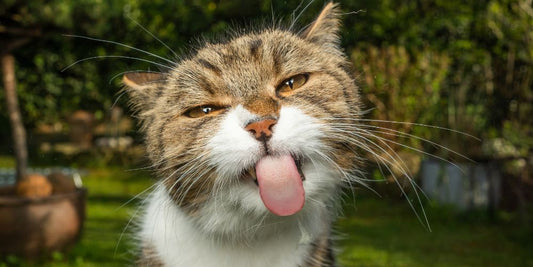When it comes to ensuring the health and well-being of your beloved furry companion, one of the most critical decisions you'll make is choosing the right pet food. With a plethora of options available, ranging from kibble to canned, raw, and even homemade diets, it can be overwhelming to decide what's best for your pet. This guide aims to help you navigate the maze of pet food choices and make an informed decision.
Types of Pet Food
Kibble: Dry kibble is the most common and convenient type of pet food. It's easy to store, has a long shelf life, and can help maintain dental health by reducing plaque build-up. Look for high-quality kibble that lists a meat source as the first ingredient, is free from artificial additives, and meets your pet's specific dietary requirements (e.g., age, size, and activity level).
Canned Food: Canned pet food is a moist option that can be more appealing to picky eaters and provide extra hydration. It's often higher in protein and lower in carbohydrates compared to kibble. Choose canned foods that are well-balanced and meet your pet's nutritional needs.
Raw Diet: Raw diets consist of uncooked meats, bones, and sometimes vegetables. Advocates argue that it mimics a natural diet for dogs and cats. However, it requires careful preparation to ensure a balanced diet and reduce the risk of bacterial contamination. Consult with a veterinarian or veterinary nutritionist before transitioning to a raw diet.
Homemade Diets: Homemade diets offer complete control over ingredients, but they also come with the responsibility of ensuring proper nutrition. If you choose to prepare your pet's food at home, consult with a veterinarian or veterinary nutritionist to formulate a well-balanced diet tailored to your pet's needs.
Factors to Consider
Age: Puppies, adult dogs, and senior dogs have different nutritional requirements. Choose a food that matches your pet's life stage.
Size: Small breeds, large breeds, and medium-sized breeds may require different nutrient levels. Look for options designed for your pet's size.
Health Issues: If your pet has specific health concerns or dietary restrictions, consult with your veterinarian. They can recommend a special diet tailored to your pet's needs.
Ingredients: Read the ingredient list carefully. Look for high-quality protein sources, whole grains (if included), and minimal fillers or artificial additives. There are also lots of foods that can be harmful to pets, which is important to consider if you are thinking about providing your pet with a homemade diet!
Price: Quality comes at a cost, but investing in good pet food can lead to long-term savings in veterinary bills. Balance your budget with your pet's nutritional needs.
Brand Reputation: Choose reputable pet food brands with a history of producing safe and nutritious products.
Selecting the right pet food is a crucial decision that directly impacts your pet's health and happiness. Consider your pet's age, size, health, and dietary preferences when choosing between kibble, canned food, raw diets, or homemade options. Always consult with your veterinarian to ensure you're providing the best nutrition for your furry friend, and remember that a balanced diet is the foundation of a long and healthy life together.
And don’t forget to keep your pets safe from nasty parasites too! Pet parasite protection is also important in guaranteeing a long and healthy life for your pet. That’s why Pet Lovers Club offers complete pet parasite protection delivered right to your door every month. Sign up today and join the club!






